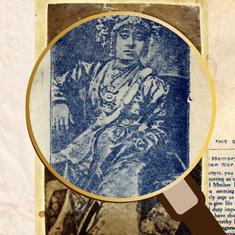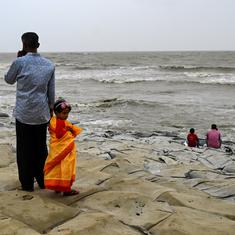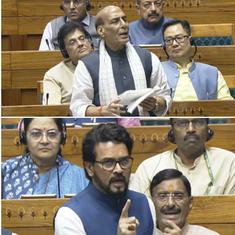Rush Hour: Student arrested for remark about Prophet gets bail, Trump reinstates travel ban and more
Become a Scroll member to get Rush Hour – a wrap of the day’s important stories delivered straight to your inbox every evening.

We’re building a brand-new studio to bring you bold ground reports, sharp interviews, hard-hitting podcasts, explainers and more. Support Scroll’s studio fund today.
The Calcutta High Court granted interim bail to a law student who was arrested by the Kolkata Police in Gurugram on May 30 for remarks about Prophet Muhammad on social media. Sharmishta Panoli, a 22-year-old student at a Pune university, had reportedly made comments on Instagram that allegedly hurt religious sentiments. However, she later deleted the post and issued an apology on X.
The student’s counsel argued that the case was a violation of her fundamental rights and that the complaint against Panoli did not disclose a cognisable offence. “Blasphemy is not in the law of the land,” the lawyer argued.
The bench said that further custodial interrogation was not needed and that Panoli could be released. Read on.
The Karnataka High Court issued a notice to the state government over the stampede that took place outside Bengaluru’s Chinnaswamy Stadium on Wednesday. Eleven persons had died and 33 were injured in the incident. Fans had gathered to celebrate Royal Challengers Bengaluru’s victory in the Indian Premier League.
The court took suo motu cognisance of the incident and sought a “further status report” from the state.
While Deputy Chief Minister DK Shivakumar said that the state will take responsibility for the incident, state Home Minister G Parameshwara claimed that the government had only facilitated the victory event that the cricket team and the Karnataka State Cricket Association had organised.
The Board of Control for Cricket in India distanced itself from the incident saying that its responsibilities ended when the tournament concluded on Tuesday.
The cricket franchise announced financial support of Rs 10 lakh each for families of the 11 deceased. Read on.
A court in the United States sentenced a person of Indian origin to 26 months of imprisonment for making threats of violence against employees of a Sikh non-profit organisation.
In September 2022, Bhushan Athale had sent seven voicemails to the phone number of a Sikh-rights organisation threatening to injure and kill the Sikh individuals working there. He sent two more “hate-fuelled” voicemails to the number of the same organisation in March 2023.
Athale was charged with a federal hate crime in June and pleaded guilty to the charges in January. Read on.
Citing national security concerns, President Donald Trump banned citizens of 12 countries from entering the United States. Those from seven other countries will also face restrictions from June 9.
The countries whose citizens have been banned are Afghanistan, Myanmar, Chad, the Republic of Congo, Equatorial Guinea, Eritrea, Haiti, Iran, Libya, Somalia, Sudan and Yemen. Travellers from Burundi, Cuba, Laos, Sierra Leone, Togo, Turkmenistan and Venezuela will face increased restrictions.
The list will be updated based on changes in the situation and in light of new national security threats, said Washington.
Trump claimed that the list was drawn up based on the homeland security department’s analysis of factors such as “large-scale presence of terrorists, failure to cooperate on visa security, inability to verify travellers’ identities, inadequate record keeping of criminal histories and persistently high rates of illegal visa overstays and other things”.
In 2017, Trump had signed a similar order, described by some as a “Muslim ban”. The Joe Biden administration had repealed the ban in 2021. Read on.
The Lakshadweep administration’s decision to remove Arabic and Mahal languages from school curriculum in the Union Territory was “deeply disturbing”, said Kerala Education Minister V Sivankutty. The Mahal language, also known as the Maliku dialect, is a variant of Dhivehi, which is the official language of the Maldives. It also has Malayalam influences.
Lakshadweep’s education department had on May 14 directed the removal of the two languages under the 2023 National Curriculum Framework, a set of guidelines for teaching practices, textbooks and syllabi in schools.
Malayalam and English medium schools in Minicoy, the southernmost island in the Lakshadweep archipelago, would now offer Malayalam and English as the first and second languages, with Hindi replacing Mahal and Arabic as the third language, according to the directive. Read on.
If you haven’t already, sign up for our Daily Brief newsletter.









